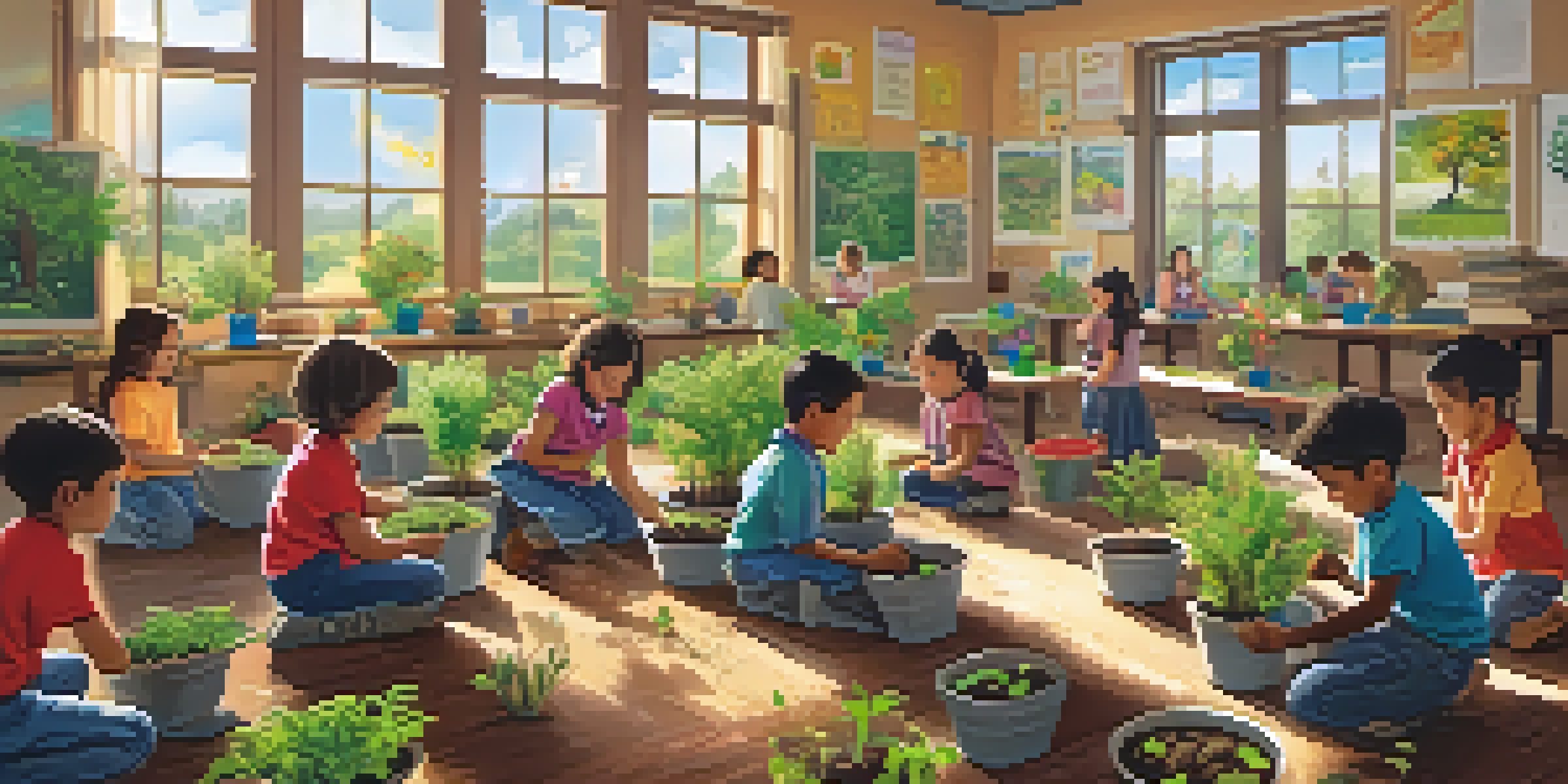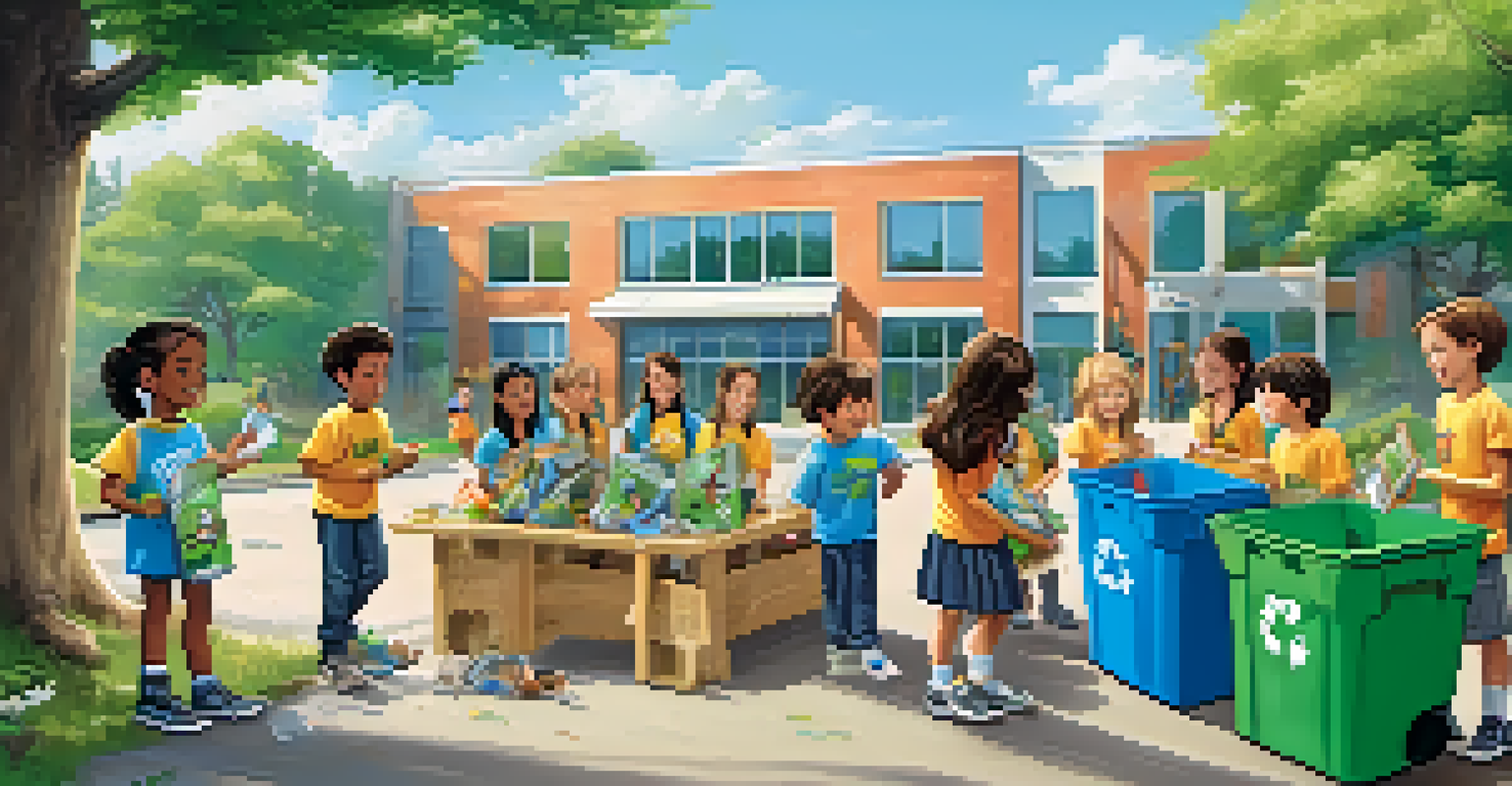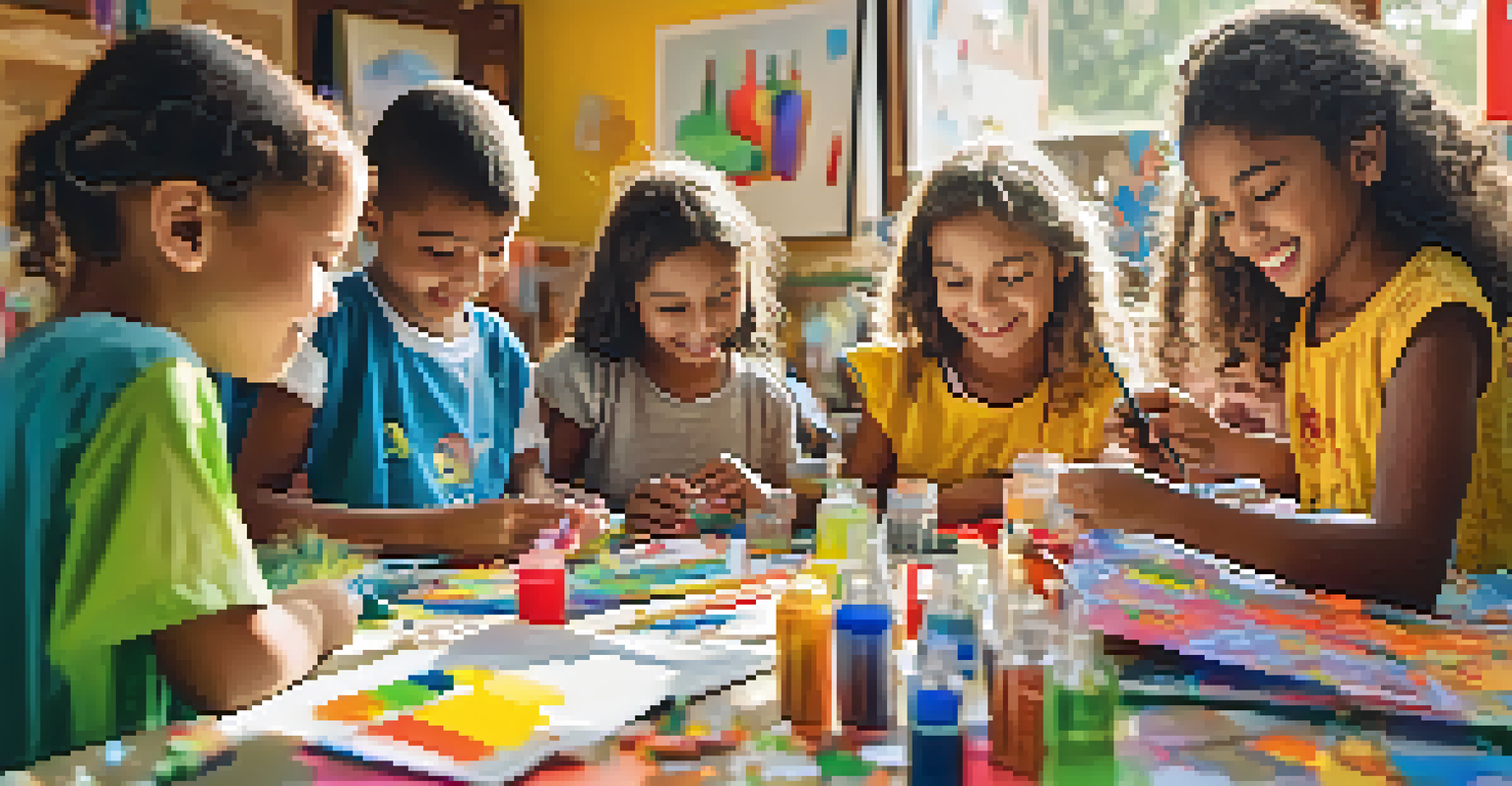Benefits of Teaching Sustainability in Primary Education

Inspiring Young Minds to Care for the Planet
Teaching sustainability in primary education opens children's eyes to the world around them. When kids learn about environmental issues, they start to develop a sense of responsibility towards nature. This early exposure fosters a deep-rooted respect for the planet, shaping them into mindful adults.
The greatest threat to our planet is the belief that someone else will save it.
Imagine a classroom where students engage in hands-on activities, like planting trees or recycling projects. These experiences not only make learning fun but also instill the importance of caring for the environment. By connecting lessons to real-life actions, children can see the tangible impact of their efforts.
Furthermore, this early engagement with sustainability can lead to lifelong habits. When children understand the importance of conservation, they are more likely to carry those values into adulthood, ultimately contributing to a healthier planet.
Building Critical Thinking Skills through Sustainability
Integrating sustainability into the curriculum encourages critical thinking among young learners. Students are challenged to ask questions like, 'How can we reduce waste?' or 'What can we do to save energy?' These inquiries promote analytical skills that are essential in today's complex world.

For example, a project involving local ecosystems can lead students to research biodiversity and the effects of pollution. As they gather information and draw conclusions, they learn to think independently and evaluate solutions. This hands-on learning process enhances their problem-solving abilities.
Sustainability Fosters Responsibility
Teaching sustainability in schools nurtures a sense of responsibility in children toward the environment.
By cultivating critical thinking through sustainability, we prepare students for future challenges. They become adept at navigating issues not just in environmental contexts but across various disciplines, giving them a well-rounded education.
Fostering Collaboration and Teamwork in Classrooms
Sustainability projects often require collaboration, which nurtures teamwork skills in young students. Working together on initiatives, like community clean-ups or school gardens, teaches children the value of cooperation and collective effort. This communal experience can be incredibly rewarding.
Education is the most powerful weapon which you can use to change the world.
When students collaborate, they learn to communicate their ideas effectively and respect differing viewpoints. These skills are vital, as they prepare children for future group settings, whether in higher education or the workplace. The ability to work well with others is a key component of success.
Moreover, through teamwork, children develop friendships and a sense of community. They learn that working towards a common goal can be both fulfilling and enjoyable, making sustainability a shared mission that extends beyond the classroom.
Encouraging Responsible Citizenship from an Early Age
Teaching sustainability helps cultivate responsible citizens who are aware of their impact on the world. Children who learn about sustainability are more likely to engage in eco-friendly practices, such as recycling and conserving resources. This awareness lays the foundation for a lifetime of responsible choices.
For instance, when kids understand the consequences of littering or wasting water, they become advocates for change in their communities. They may even inspire their families to adopt greener practices, amplifying their impact beyond the classroom. This ripple effect can lead to significant environmental improvements.
Critical Thinking for Future Challenges
Integrating sustainability into education encourages critical thinking skills that prepare students for complex real-world problems.
As these young citizens grow, they carry with them the lessons learned about stewardship. They become empowered to participate in community initiatives and advocate for policies that protect the environment, ensuring a sustainable future for generations to come.
Enhancing Emotional Intelligence through Environmental Education
Sustainability education can significantly boost emotional intelligence in children. When students engage with environmental issues, they often experience empathy for both nature and the creatures that inhabit it. This connection fosters emotional growth and a sense of compassion.
For example, a lesson on endangered species can spark discussions about loss and preservation, prompting students to reflect on their feelings. These conversations help children articulate their emotions and develop a deeper understanding of the world around them. Emotional intelligence is crucial for navigating social interactions throughout life.
By teaching children to care for the environment, we also teach them to care for each other. This emotional connection encourages kindness, cooperation, and a sense of community, creating a more harmonious classroom environment.
Nurturing Creativity through Sustainability Projects
Sustainability initiatives provide a fantastic outlet for creativity in the classroom. Whether students are designing a compost system or creating art from recycled materials, they are encouraged to think outside the box. This hands-on approach allows them to express themselves while learning valuable lessons.
For instance, a project where students develop a campaign to reduce plastic use can inspire innovative solutions. They may create posters, videos, or even perform skits to share their ideas. Such projects not only reinforce learning but also ignite a passion for creativity and problem-solving.
Collaboration Builds Community Spirit
Sustainability projects promote teamwork and collaboration, helping students develop essential skills for future success.
As students engage creatively with sustainability, they gain confidence in their abilities. This confidence can translate to other areas of their education, encouraging them to take risks and explore new ideas without fear of failure.
Preparing Students for a Sustainable Future
Incorporating sustainability into primary education equips students with knowledge for the future. As global challenges like climate change and resource depletion become more pressing, it is essential that young people are informed and prepared. Education is the first step in addressing these issues.
By teaching sustainability, we provide students with the tools they need to tackle future challenges head-on. They learn about renewable energy, conservation practices, and sustainable living, which are vital skills in an ever-evolving world. This knowledge empowers them to make informed decisions.

Ultimately, preparing students for a sustainable future means creating a generation that cares deeply about the planet. They will be the innovators, leaders, and advocates of tomorrow, equipped with the skills and understanding to drive positive change.